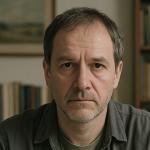Brazil is putting pressure on the global stage with a vaccination debate against bird flu and a World Conference in 2026 to open new pathways in international poultry trade. After the first outbreak of bird flu in a commercial poultry farm in Brazil in May, the Ministry of Agriculture in Brazil is focusing on international momentum. Agriculture Minister Carlos Favaro advocated for a worldwide debate on vaccination strategies against Highly Pathogenic Avian Influenza (HPAI) at the WOAH meeting in Paris. Brazil is prepared to host a global animal health conference in 2026 to make vaccinations against HPAI discussable in relation to issues concerning global poultry product trade. The goal is to reduce trade risks and strengthen regionalization. The concern is that while vaccinations may reduce disease pressure, they could also endanger international trade. Many importing countries of poultry meat, eggs, day-old chicks, or parent birds currently reject vaccination against HPAI, fearing that the virus could be introduced unnoticed despite vaccination. Favaro, therefore, calls for an open dialogue between exporters and importers to avoid blanket trade restrictions in the event of vaccinations. Instead, a regionalization approach should be implemented, where only specifically affected regions are excluded from exports, not entire countries. Brazil is the world's largest chicken exporter. Following the recent outbreak, exports to around 20 countries, including the EU and China, were temporarily halted. This vaccination debate against bird flu takes on a geopolitical dimension, emphasizing the necessity of a universally accepted solution.


